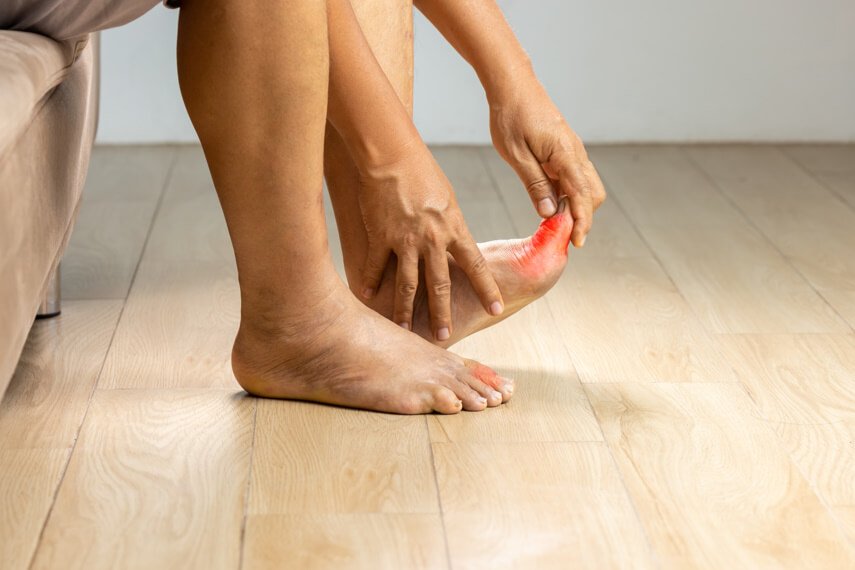How Nerve Surgery Helps Stop Diabetic Foot Ulcers Early
Foot ulcers are one of the most serious and preventable complications of diabetes. Once they develop, they can be slow to heal and, in severe cases, may lead to amputation. Recent medical advancements now offer an effective way to address one of the root causes, nerve compression. Through specialised decompression of nerve techniques, it is possible to reduce the risk of ulcers and preserve foot health. For patients seeking advanced care, options like Nerve Repair Surgery Treatment in Surat are helping restore sensation, improve mobility, and prevent long-term complications.
Understanding Diabetic Neuropathy
Diabetic neuropathy is nerve damage caused by prolonged high blood sugar levels. Over time, excess glucose damages the nerves and the blood vessels that supply them. This can lead to:
- Numbness or reduced sensation in the feet.
- Burning, tingling, or shooting pain.
- Muscle weakness in the lower limbs.
Because sensation is reduced, minor injuries or pressure spots often go unnoticed, increasing the risk of wounds becoming infected.
What Causes Foot Ulcers in Diabetics?
A diabetic foot ulcer is an open sore that usually develops on the bottom of the foot. Several factors contribute to their formation:
- Loss of sensation due to nerve damage.
- Poor circulation that slows healing.
- Foot deformities that create pressure points.
- Unnoticed injuries from ill-fitting footwear or small cuts.
Without timely Diabetic Foot Ulcer Treatment, these wounds can deepen, get infected, and threaten limb health.
The Role of Nerve Compression in Diabetic Feet
In many diabetic patients, nerve damage is made worse by nerve entrapment or compression. This happens when surrounding tissues press on already vulnerable nerves, further reducing blood supply and function. Compression often affects nerves around the ankle, calf, or tarsal tunnel.
The result is a dangerous combination, impaired sensation and ongoing nerve stress, which can accelerate foot damage. Addressing this compression through a nerve operation can help restore function before ulcers form.
What is Nerve Decompression Surgery?
Nerve decompression surgery is a specialised procedure to relieve pressure on compressed nerves. During the decompression of nerves, the surgeon carefully releases tight tissues around the nerve, improving blood flow and allowing it to function more effectively. This surgery is minimally invasive in most cases and targets specific sites where compression is common in diabetic patients. By removing this pressure, the aim is to restore sensation, reduce pain, and lower the risk of ulcer development.
How Nerve Surgery Helps Prevent Ulcers
Here is how Nerve Repair Surgery Treatment in Surat and similar procedures make a difference:
- Restores sensation: Patients regain the ability to feel pressure, temperature, and pain, making it easier to detect small injuries early.
- Improves nerve health: Better blood supply supports healing and slows further nerve deterioration.
- Reduces pain: Relieving nerve compression can ease burning or tingling discomfort.
- Prevents pressure sores: With improved sensation, patients are less likely to develop unnoticed blisters or calluses that lead to ulcers.
In essence, nerve damage can be repaired or at least stabilised in many patients through timely decompression, allowing them to maintain an active lifestyle with reduced ulcer risk.
Who Can Benefit from This Surgery?
Nerve decompression may be suitable for diabetic patients who:
- Have symptoms of neuropathy such as numbness, tingling, or pain.
- Show signs of nerve compression confirmed by diagnostic tests.
- Have not yet developed deep or infected ulcers.
- Are committed to ongoing foot care and diabetes management.
An early evaluation by a diabetic foot specialist can determine if you are a candidate for this nerve repair surgery treatment.
Recovery and Outcomes
Recovery after a nerve operation is typically straightforward:
- Hospital stay: Often performed as a day procedure or with an overnight stay.
- Post-surgery care: Includes wound dressing changes and avoiding excessive strain on the foot initially.
- Return to activity: Light walking is encouraged within days, with gradual return to full mobility.
- Results: Many patients experience improved sensation and reduced discomfort within weeks.
Outcomes depend on the severity of nerve damage before surgery. The earlier the intervention, the better the results in preserving nerve function.
Preventive Foot Care Still Matters
While nerve decompression can greatly reduce ulcer risk, it is not a substitute for daily preventive care. You should:
- Inspect your feet daily for cuts, blisters, or colour changes.
- Wear well-fitting shoes and cushioned socks.
- Keep blood sugar levels under control.
- Schedule regular foot check-ups with your healthcare provider.
Combining surgery with diligent Diabetic Foot Ulcer Treatment strategies offers the best long-term protection.
Conclusion
Diabetic foot ulcers do not develop overnight, they are the result of ongoing nerve and circulation issues. By addressing nerve compression early through decompression of nerve surgery, patients can protect sensation, prevent ulcers, and maintain mobility. For those seeking quality care, the nerve surgery cost in India is often much more affordable compared to other countries, with expert facilities like Nerve Repair Surgery Treatment in Surat delivering excellent outcomes.
If you have symptoms of neuropathy or early foot changes, do not wait for ulcers to appear, timely consultation can make all the difference.
FAQs
What is nerve surgery for diabetic foot problems?
It is a procedure that relieves pressure on compressed nerves in the foot and leg, improving sensation and reducing ulcer risk.
How does nerve surgery help prevent foot ulcers?
By restoring blood flow and nerve function, patients can feel small injuries early, preventing them from turning into serious ulcers.
Who should get this surgery?
Patients with diabetes who have nerve symptoms and confirmed nerve compression, but no severe active ulcer or infection, may be candidates.
Is nerve surgery safe?
Yes, when performed by an experienced surgeon, it is generally safe with a short recovery time.
Will I feel better right after surgery?
Some patients notice improvement quickly, while others may see gradual progress over weeks as nerve function recovers.



.jpg)

